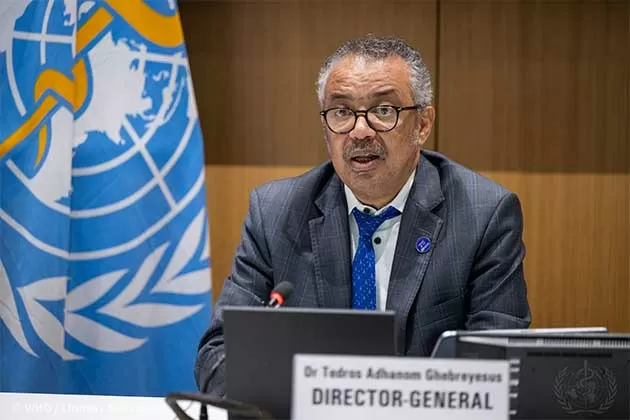On August 15th, the Deputy Spokesperson for the Secretary-General, Farhan Haq, addressed the press at the United Nations Headquarters to provide an update on the ongoing Mpox epidemic in the Democratic Republic of Congo (DRC) and its spread throughout Africa. The alarming frequency of these cases has raised serious concerns for global health.
Mpox, formerly known as monkeypox, is a viral disease that is transmitted to humans through contact with infected animals, primarily monkeys and rodents. It is a rare disease, but its recent surge in the DRC and other African countries has caused widespread panic and fear.
According to the World Health Organization (WHO), there have been over 4,000 reported cases of Mpox in the DRC since the beginning of the year, with a significant increase in the number of cases in the past few weeks. The disease has also spread to neighboring countries, including Nigeria, Cameroon, and the Central African Republic.
The Deputy Spokesperson expressed deep concern over the situation and emphasized the need for urgent action to contain the spread of Mpox. He stated, “The continued surge of Mpox cases in the DRC and its spread throughout Africa is a cause for global concern. We must act swiftly and decisively to prevent this disease from becoming a major health crisis.”
The Mpox epidemic has already claimed several lives in the DRC, and the number of fatalities is expected to rise if immediate measures are not taken. The disease is highly contagious and can be fatal in severe cases. Symptoms include fever, rash, and swollen lymph nodes, which can progress to severe respiratory and neurological complications.
The WHO and other international organizations have been working closely with the DRC government to contain the spread of Mpox. They have provided medical supplies, trained healthcare workers, and implemented strict surveillance measures to identify and isolate suspected cases.
The United Nations has also been actively involved in the response to the Mpox epidemic. The UN Mission in the DRC (MONUSCO) has been supporting the government’s efforts to control the disease and has deployed medical teams to affected areas. The UN Children’s Fund (UNICEF) has been providing essential supplies and services to affected communities, including clean water, hygiene kits, and education on prevention measures.
The Deputy Spokesperson commended the efforts of all those involved in the response to the Mpox epidemic and urged for continued support from the international community. He stated, “We must work together to contain this disease and prevent it from spreading further. The UN and its partners are committed to supporting the DRC government in this critical time, but we need the support of the international community to effectively tackle this global health concern.”
The UN has also called for increased funding to support the response efforts. The WHO has estimated that at least $10 million is needed to effectively contain the Mpox epidemic in the DRC and prevent its spread to other countries.
In addition to the immediate response, the Deputy Spokesperson also stressed the need for long-term measures to prevent future outbreaks of Mpox. He stated, “We must address the root causes of this epidemic, including the illegal trade and consumption of wild animals, which increases the risk of zoonotic diseases like Mpox. We must also strengthen healthcare systems in affected countries to better respond to such outbreaks in the future.”
In conclusion, the Mpox epidemic in the DRC and its spread throughout Africa is a cause for global concern. The UN and its partners are working tirelessly to contain the disease and prevent it from becoming a major health crisis. However, urgent action and increased support from the international community are needed to effectively tackle this global health concern. Let us all join hands and work together to protect the health and well-being of all individuals, regardless of their location or nationality.



